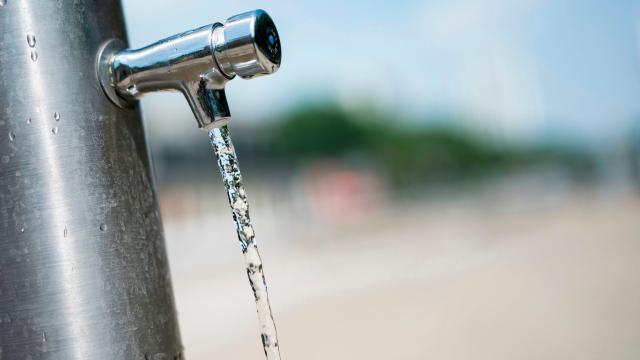To help stop the spread of the coronavirus sweeping the globe, health experts have urged people around the world to wash their hands frequently. But recent research shows that many people have been unable to follow those guidelines because they lack access to clean running water. In fact, one 2019 study suggests that one quarter of households in low and middle income countries don’t have secure water access. In a comment published in Nature Sustainability on Monday, researchers urge policymakers to change that.
Issues with global water security long pre-dated the coronavirus pandemic, but like many issues of inequality, this global health crisis brought these problems into sharp relief.
“The COVID-19 pandemic has laid bare the urgent need for global action on water security,” paper co-author Professor David Hannah, the UNESCO Chair in Water Sciences at the University of Birmingham, said in a statement. “This is a basic human right that is not being met in large sections of the world’s population and COVID-19 has provided us with a wake-up call that we cannot afford to ignore.”
Lack of access to water not only threatens people’s ability to wash their hands; it can also create a host of health problems and threaten agriculture. Almost a quarter of the world’s population lives in areas that are under water stress, and the climate crisis will likely make a bad situation worse by causing more erratic precipitation.
There’s no single way to fix this lack of water access globally, because the problems are manifold. On the one hand, there are issues with availability — there are households, including in the U.S., which do not have plumbing at all. As the climate crisis dries up water bodies around the world, lack of availability will become even more of an issue. Then, there are issues with water cost. Many people face unaffordable water bills and in some cases risk getting their supply shut off if they can’t pay. On top of all that, there are issues with water quality. The lack of adequate sanitation measures can leave people with unclean water which can transmit dangerous illnesses like diarrhoea, cholera, dysentery, typhoid, and polio as well as the risk of consuming toxic pollution from lead to so-called “forever chemicals.”
“Availability is necessary but not sufficient, water access is necessary but not sufficient, and water quality…is too,” said Sera Young, an associate professor of anthropology and global health at Northwestern University and co-author of the new article. “You need all three.”
The experts put forth suggestions for how civic leaders could improve global access to water. A key area for improvement is in water infrastructure and technologies, which includes improving global water treatment and distribution systems. The authors also call to developing better ways to recycle and reuse domestic wastewater and rainwater, especially in geographies that where water supply is threatened by drought. Additionally, they call for global measures to evaluate problems with water cost so that solutions can be developed.
Sometimes, the authors acknowledge, policymakers will have to plan to use temporary solutions such as distributing bottled water in the face of drought. The authors say leaders should take steps to ensure these emergency response mechanisms are possible.
But they also caution against over-reliance on these band-aid fixes, because they each come with their own problems. When supplies aren’t free, for instance, these fixes can create issues of inequality. They can also create pollution, as well as other ecological problems that further threaten water quality.
“In Ghana, for example, people use sachet water, which are little baggies of water that are sealed,” said Young. “When they’re done, people sometimes throw the empties onto down the ground, where they [can block] the water drains and can cause flooding, which then contaminates water further.”
The experts also call for policymakers and other civic leaders to promote behavioural change. By launching education campaigns, the authors say, leaders could help global populations to conserve water when possible.
“We all need to stop taking water for granted,” said Young.
